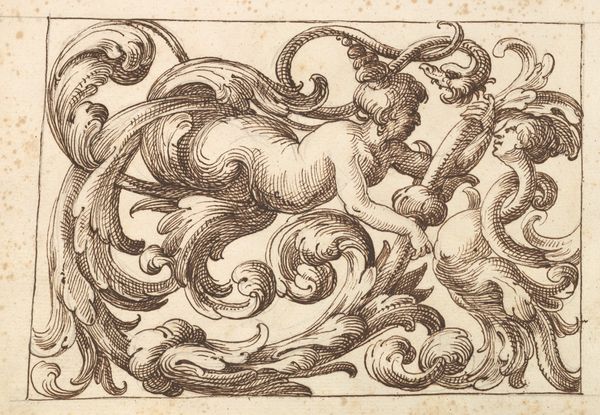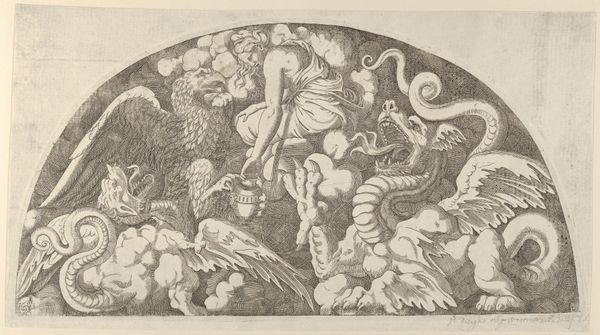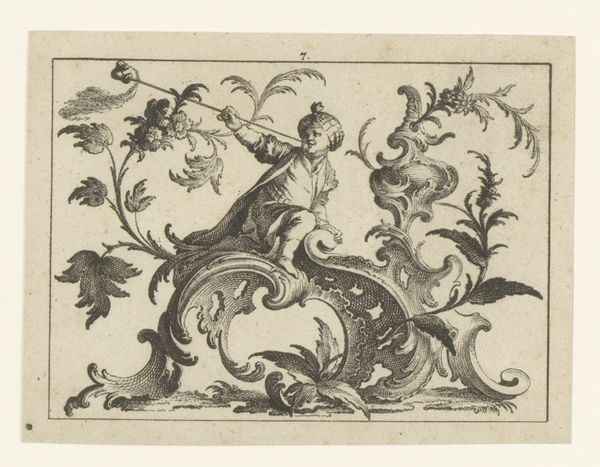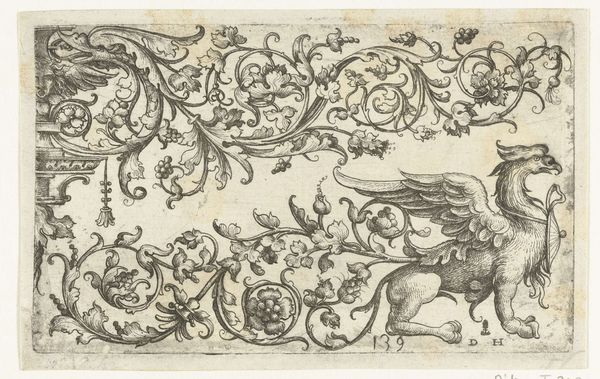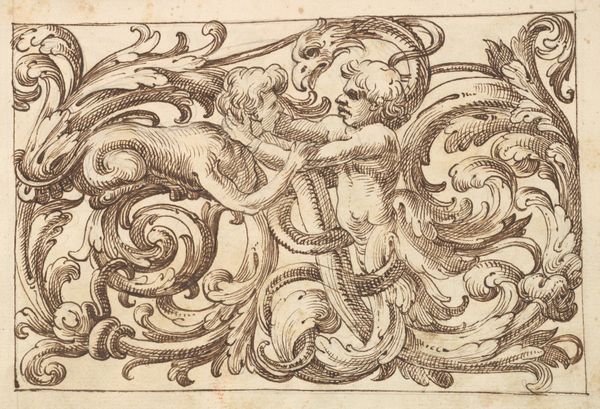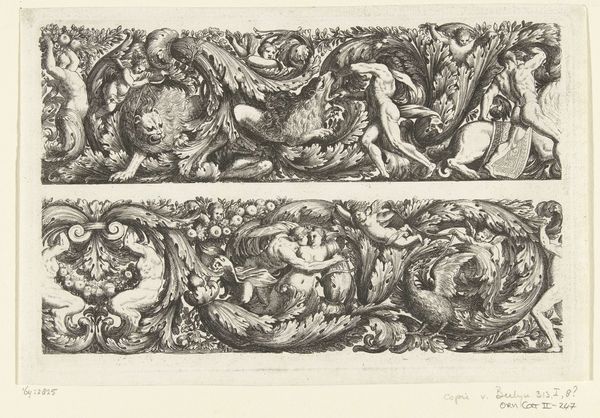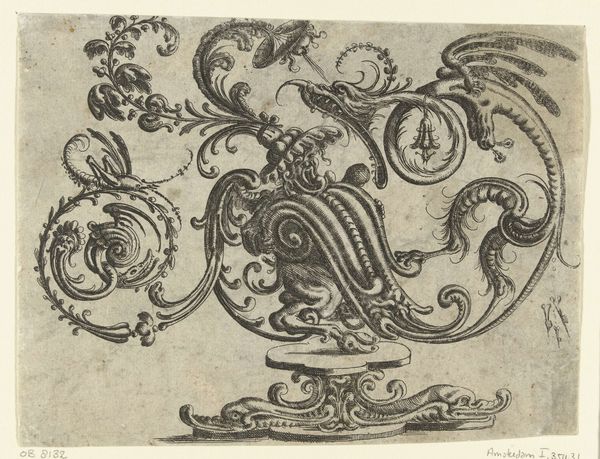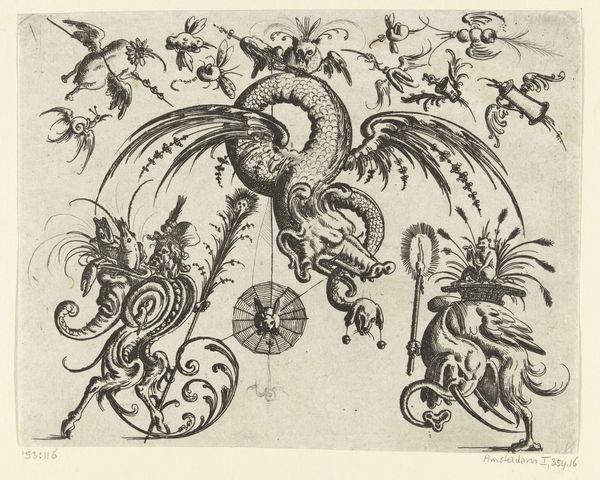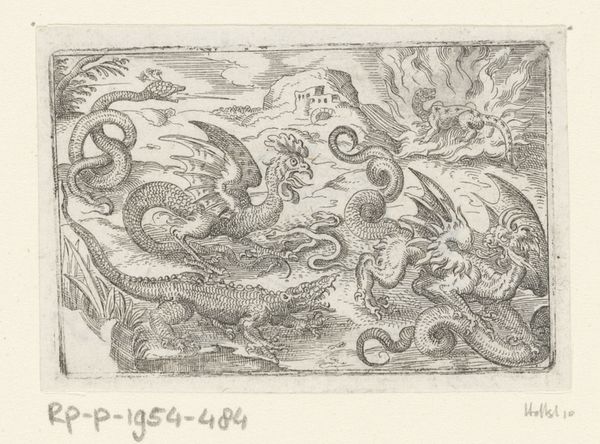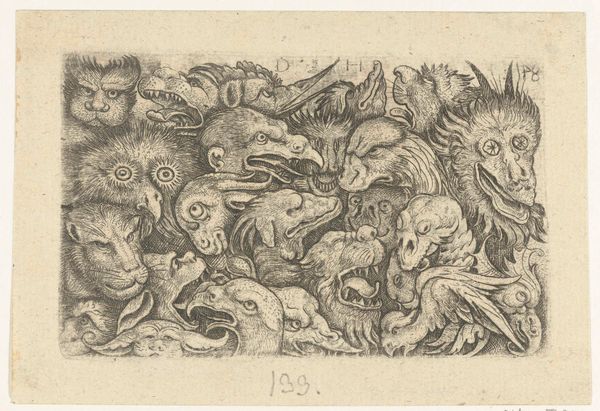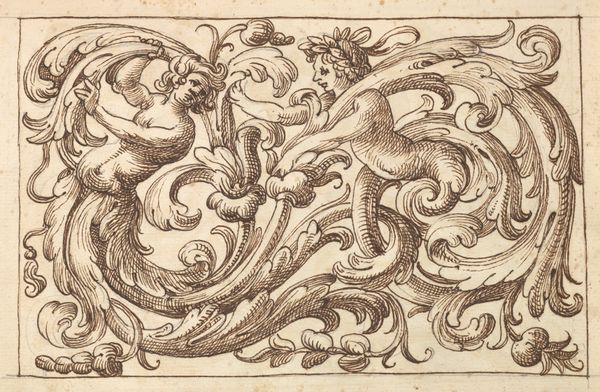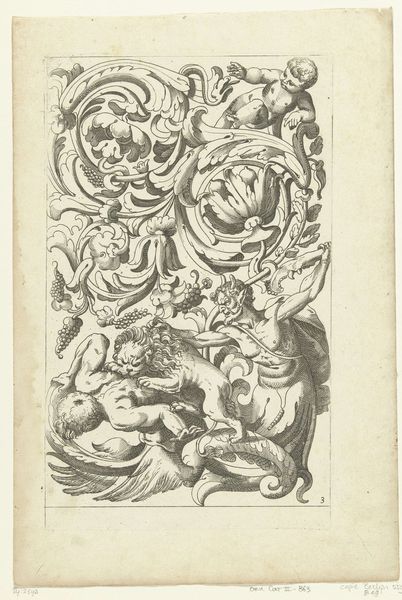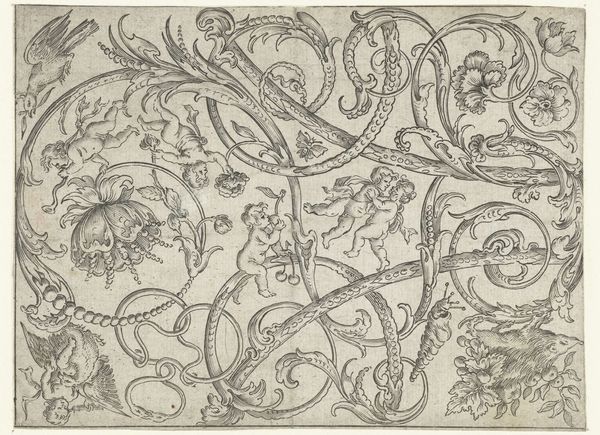
drawing, ink, engraving
#
drawing
#
baroque
#
pen drawing
#
mechanical pen drawing
#
pen illustration
#
pen sketch
#
form
#
ink
#
pen-ink sketch
#
line
#
pen work
#
sketchbook drawing
#
decorative-art
#
engraving
Dimensions: height 227 mm, width 158 mm
Copyright: Rijks Museum: Open Domain
Editor: So, here we have "Designs for Keyholes and Keys" by Jean Lepautre, dating back to before 1667. It's an ink and engraving drawing held at the Rijksmuseum. What strikes me most is its almost overwhelming ornamentation—it’s so detailed. What do you make of it? Curator: It’s fascinating to see how seemingly functional objects like keyholes became canvases for elaborate artistic expression. In Lepautre's era, the Baroque period, power and status were visually communicated through ornamentation. It’s less about the function of the lock, and more about its symbolic value. Editor: So, these aren't just pretty drawings, they’re also communicating something about status and authority? Curator: Precisely! Consider who would commission such elaborate designs. These weren't for everyday doors, but likely for palaces or important civic buildings. The keyhole becomes a statement. Think about it: What does controlling access to a space imply about one’s social position and power? Editor: That's interesting. The drawing also seems to borrow from nature with those flourishes that suggest feathers and plants... Curator: Absolutely! The use of natural motifs within architecture and design was a deliberate choice, connecting the built environment to the 'natural order' and further legitimizing the power structures associated with these spaces. Editor: I see how analyzing even something like a keyhole design opens up conversations about history and power dynamics. Thanks! Curator: My pleasure. It highlights how art, even in its seemingly minor forms, can reflect larger cultural and political narratives.
Comments
No comments
Be the first to comment and join the conversation on the ultimate creative platform.
